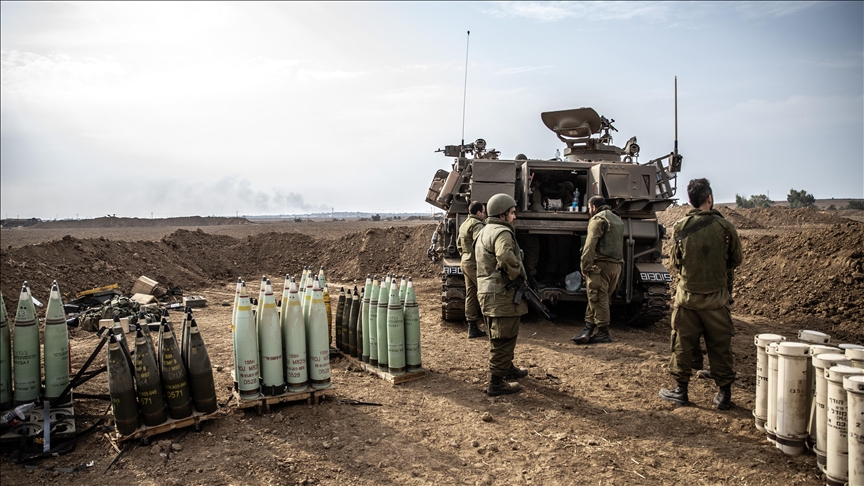WASHINGTON ( WNAM MONITORING: The US fast-tracked arms sales to Israel despite internal concerns about the misuse of American-made bombs and human rights violations even as civilian casualties in the Gaza Strip surged, according to an investigation by ProPublica.
In the months before and after the Oct. 7 attack by the Palestinian resistance group, Hamas, State Department officials urged the halting or restricting arms sales to Israel, citing laws against arming nations with a pattern of human rights violations. Top officials, however, repeatedly overruled those appeals, according to the report, which cited leaked cables, emails and interviews
In late January, as the death toll reached 25,000 in Gaza, US Ambassador to Israel Jack Lew pushed the State Department to approve a request from Israel for 3,000 additional bombs, including GBU-39s, despite internal warnings of civilian casualties and Israeli strikes on homes, including those of Palestinian embassy staff.
Top Biden administration officials, including Secretary of State Antony Blinken, acknowledged civilian suffering in Gaza at that time but defended Israel’s right to defend itself following the attack by Hamas.
A State Department spokesperson defended the arms transfers as being conducted with input from various agencies and insisted that Lew prioritized minimizing civilian harm while working toward a cease-fire, according to ProPublica.
An Israeli government spokesperson criticized the “biased” article as portraying normal diplomatic relations between Israel and US officials as improper, it added.
The investigation also revealed that the US Embassy in Jerusalem prioritized protecting Israel from scrutiny and facilitating arms sales, resisting investigations into human rights abuses.
“In most places our goal is to address human rights violations,” former diplomat Mike Casey, was quoted in the article.“We don’t have that in Jerusalem.”
Lobbyists for US military contractors have consistently pressured lawmakers and officials to keep arms shipments flowing to Israel and allies like Saudi Arabia.
The report included an image of wine cases — reportedly a gift from the Israeli Embassy to staff in the State Department’s arms transfers bureau in Washington, D.C., who worked “overtime, often after hours and through weekends, to process Israeli requests for more arms.”
A State Department spokesperson did not deny the cases of wine to ProPublica but said, “Employees are allowed to accept gifts from foreign governments that fall below a certain dollar threshold, and called the allegations “insulting.”
An Israel government spokesperson said that the “embassy routinely sends individual bottles of wine (not cases) to many of its contacts to cordially mark the end of the year holidays.”


